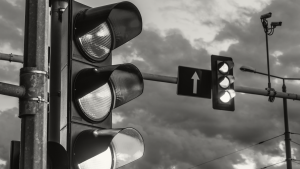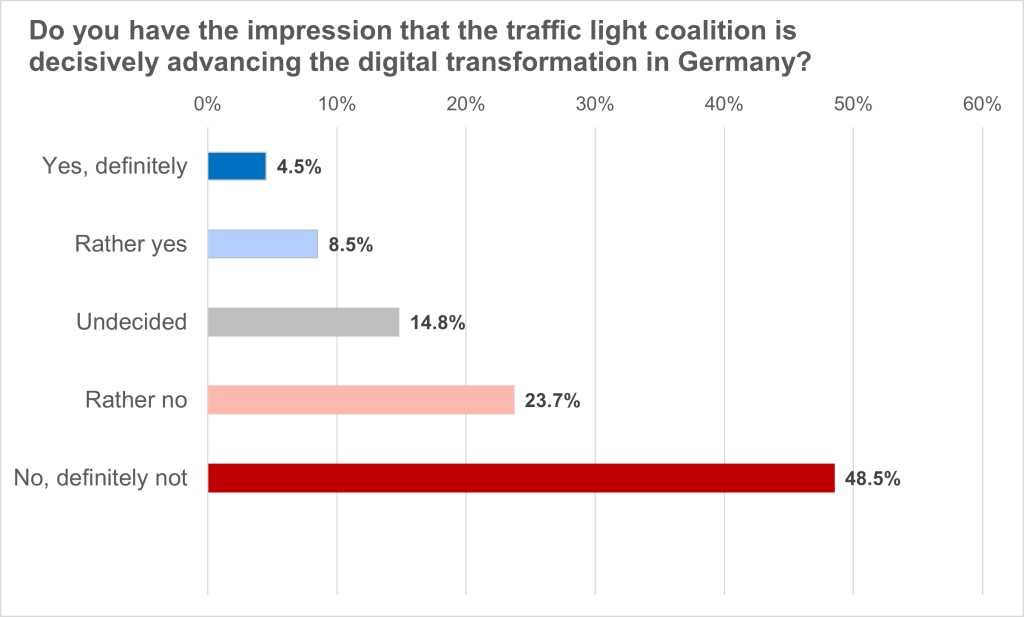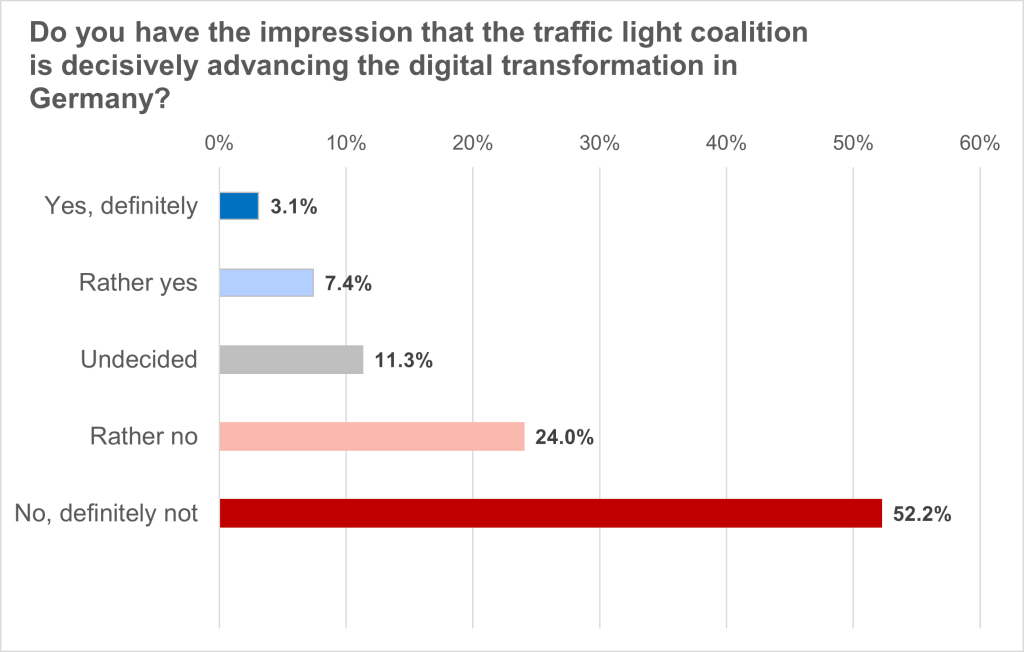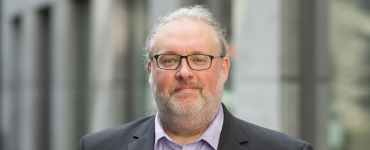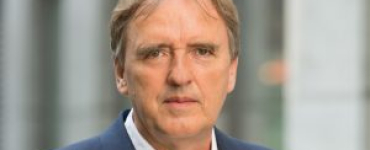eco Chair Oliver Süme: “The public’s pessimism regarding the implementation of Internet policy should be a wake-up call for the German federal government. Falling behind in digitalisation can have drastic consequences for the competitiveness and future viability of Germany as a business location.”
- eco survey at the mid-term of the traffic light coalition: 78.2 per cent believe that the traffic light coalition is not driving the digital transformation forward
- eco’s 12-point mid-term review: only moderate to no progress in eleven out of twelve digital policy areas
- Budget crisis jeopardises digital transformation in Germany
Approximately two years after the signing of the coalition agreement by the coalition government on 7 December 2021, there is growing dissatisfaction among the population when it comes to Internet policy: While 72.2 per cent of Germans still stated in 2022* that the traffic light coalition was not making decisive progress with digital transformation, this year** the figure is as high as 78.2 per cent. These are the results of a population-representative survey conducted by the market and opinion research institute Civey, which was commissioned by eco for the second year in a row.
“The general public has long realised that digital transformation is the driving force behind societal and economic development. People rightly expect the German federal government to draw up a master plan and set the political course with regard to the use of digital technologies and solutions for key challenges of our time, such as education, protection against cyber threats, structural change and the area of sustainability and climate protection,” says eco Chair Oliver Süme. Süme further notes that the German federal government has not yet delivered on these expectations. “I appeal to the traffic light coalition to take the issue of digital transformation more seriously in its second half-term and to promptly address the existing challenges,” says Süme.
eco provides a sobering mid-term assessment in its 12-point Internet policy check
It is not just the public’s assessment that is weighing on the traffic light coalition. eco’s 12-point check on Internet policy, which compares twelve topics from the coalition agreement with the current status, also comes to a sobering conclusion: eco sees only moderate to no progress in eleven out of twelve digital policy areas. Among other factors, the areas of digital strategy, European and international Internet policy and cybersecurity are in the amber category. Data retention, digital education and digital responsibility are the fields with the poorest results: here, the traffic light is red. The only area where eco has given the green light is the use of data.
“Internet policy issues are closely interlinked and therefore interdependent. It is evident that many challenges can be tackled more easily with clearly defined digital policy responsibilities. It is regrettable that this particular aspect scored so poorly in the traffic light coalition check. Conversely, it also means that the other areas could take a more positive path if the issue of responsibility is finally resolved,” says Süme.
Budget crisis deepens uncertainty in future topics
The current open questions regarding the debt brake and future investments in the federal budget will also have a significant impact on topics related to digitalisation. The ruling of the Federal Constitutional Court on the use of the Covid special fund amounting to 60 billion Euro affects the Climate and Transformation Fund, casting uncertainty on projects such as the decarbonisation of industry, the expansion of renewable energies, and electromobility. “Digitalisation and sustainability require predictability – and that is exactly what we are demanding from the German federal government,” says the eco Chair of the Board.
* The opinion research company Civey surveyed 2,509 adult German citizens between 28 November 2022 and 29 November 2022 on behalf of eco Association. The statistical error of the overall results is 3.3 per cent.
* The opinion research company Civey surveyed 2,509 adult German citizens between 25 October 2023-26 October 2023 on behalf of eco Association. The statistical error of the overall results is 3.3 per cent.
Downloads
